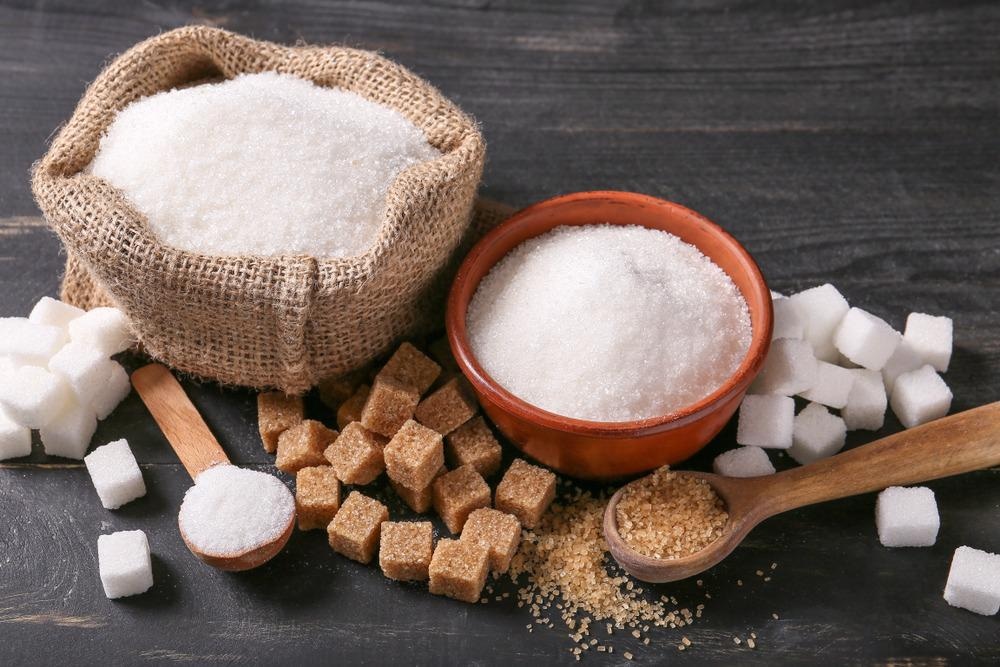The dangers of consuming too much sugar
There is a common misconception that if a person is not overweight, then they don’t need to worry about their sugar intake - that only those who are overweight must consider this. However, regardless of whether a person is overweight, research has shown that consuming too much sugar can increase a person’s chances of developing a multitude of diseases. Sugar also has been shown to influence the progression of certain diseases, such as cancer.
The American Heart Association advises that women should limit their daily sugar consumption to 25g and men to 36g. While much data associates the consumption of levels in excess of this with an increased risk of obesity, and, therefore, an increased risk of the diseases where obesity plays a factor, evidence that has emerged over recent years has demonstrated that sugar consumption on its own is enough to influence disease risk and progression. Therefore, monitoring sugar intake may become increasingly important in preventative strategies against various diseases.

Image Credit: Pixel-Shot/Shutterstock.com
Monitoring sugar intake made challenging by hidden sugars
The hidden sugar in foods that do not have the perception of being high in sugar are those that often unknowingly increase our daily intake to levels that are deemed excessive. Sugar may occur naturally in a product that is otherwise a healthy option, such as fruit, or it may be added into a product that may not seem to contain it at high levels.
There are many ways to tackle the issue of hidden sugars. We explore these below.
Know the alternative names for sugar
Unfortunately, there are over 60 names for added sugar, making it challenging to identify it when skimming the ingredients of food items while in the supermarket. To overcome this challenge, get to know the alternative names used for added sugar. Anything with the word ‘sugar’ in it is an indicator, including brown sugar, invert sugar, raw sugar, cane sugar, or malt sugar.
Equally, anything with the word ‘syrup’ such as corn syrup or high-fructose corn syrup also refers to an added sugar. While considered healthier than regular, refined cane sugar, honey is still a sugar and it should also be considered when taking into account sugar consumption. Molasses is also a type of sugar, Finally, anything ending with the suffix ‘ose’ usually denotes a syrup sugar molecule (e.g. dextrose, fructose, glucose, lactose, maltose, sucrose).
Avoid sweetening hot drinks
Many people add some form of sugar to their tea and coffee without considering it as adding to their daily sugar intake. The habit of adding sugar (in whatever form) to a hot drink adds up to a considerable level of added sugar. A study published in 2017 found that around two-thirds of coffee drinkers sweeten their beverages. Very quickly, a couple of coffees can add up to a considerable amount of added sugar.

Image Credit: Star Stock/Shutterstock.com
Know the foods that are surprisingly high in sugar
Often, food that is considered healthy isn’t expected to contain unhealthy levels of sugar. Products like low-fat yogurt, granola, protein bars, and even cereals marketed as being healthy with claims of being ‘whole grain’ or 'fortified with vitamins and minerals usually contain considerable amounts of sugar. Additionally, food that would usually be low in sugar if homemade, such as soup and smoothies, often contain high amounts of sugar when ready-made.
Finally, fruit is high in naturally occurring sugars, therefore, consumption of fruit should be taken into consideration when monitoring levels of dietary sugar. However, foods like fruit should not be avoided as they are a vitally important food group that contains high levels of vitamins and minerals. Instead, unhealthy sources of sugar should be avoided to compensate for the sugars contained in fruit.
Sugar intake and the development and progression of cancer
Sugar has been linked with various diseases but perhaps the strongest evidence is provided by research into sugar and cancer. Many types of cancer, including colorectal and endometrial cancers, have been shown to respond directly to dietary sugar intake. Others, such as breast cancer have also been linked to sugar intake but most strongly as an indirect relationship to an obese state.
It is likely, however, that all cancers are in some way influenced by sugar intake. Sugar provides the primary energy source for our body’s cells, which use transporter proteins to carry sugar through their membrane. Many studies have demonstrated that cancer cells have an increased sugar uptake and consumption. Sugar transporters have been reported to be deregulated in cancer, allowing them to intake greater levels of sugar into the cell which is thought to proliferate their growth.
Considering the strong evidence supporting the link between sugar intake and cancer, as well as other diseases, it is clear that it is vitally important to educate the public about hidden sugars and advise them on how to monitor their sugar intake.
Sources:
- (2019). The sweet danger of sugar. [Online]. Harvard Health Publishing. Available at: https://www.health.harvard.edu/heart-health/the-sweet-danger-of-sugar (Accessed 19 December)
- Calvo, M., Figueroa, A., Pulido, E., Campelo, R. and Aparicio, L., 2010. Potential Role of Sugar Transporters in Cancer and Their Relationship with Anticancer Therapy. International Journal of Endocrinology, 2010, pp.1-14. https://www.hindawi.com/journals/ije/2010/205357/
- Goncalves, M., Hopkins, B., and Cantley, L., 2019. Dietary Fat and Sugar in Promoting Cancer Development and Progression. Annual Review of Cancer Biology, 3(1), pp.255-273. www.annualreviews.org/doi/abs/10.1146/annurev-cancerbio-030518-055855
- Seely, S. and Horrobin, D., 1983. Diet and breast cancer: The possible connection with sugar consumption. Medical Hypotheses, 11(3), pp.319-327. https://www.sciencedirect.com/science/article/abs/pii/0306987783900956
Further Reading
Last Updated: Apr 13, 2022